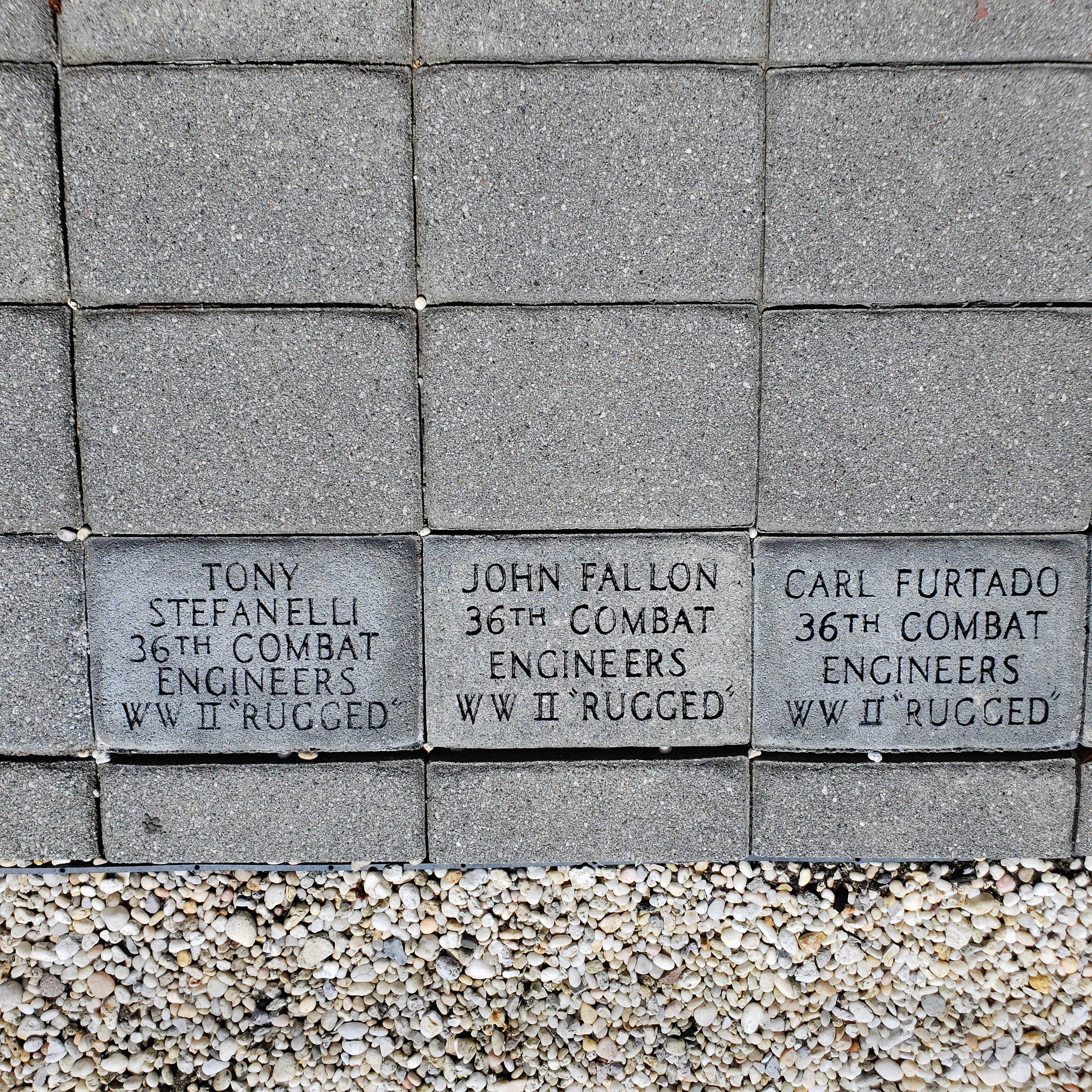
+- Forums (http://www.6thcorpscombatengineers.com/forumnew)
+-- Forum: World War II (http://www.6thcorpscombatengineers.com/forumnew/forumdisplay.php?fid=43)
+--- Forum: VI CORPS AND 5TH & 7TH ARMIES (http://www.6thcorpscombatengineers.com/forumnew/forumdisplay.php?fid=7)
+--- Thread: Pavers for the 36th Engineers - American Legion (/showthread.php?tid=5381)
Pavers for the 36th Engineers - American Legion - Walt's Daughter - 08-23-2019
Received this, this week. And I want to add that John Fallon is still with us.
Quote
Hello all,
Holly and I send our best wishes out to the 36th Combat Engineers family.
We hope all is well.
I wanted share the attached photo that I received today from the American Legion Post 331 in Stone Harbor, NJ.
Holly, my brothers and I ordered the Memorial Pavers last fall for dad & Tony.
I don’t know who donated John’s, but I had tears in my eyes when I opened the photo and saw all three of them, side by side almost 75 years after first serving together and then being friends for the rest of their lives!
Dad would have been 100 and Tony 104 later this fall.
We miss them and all their former comrades in the 36th!
Thanks again from our family for taking such good care of them all during those last reunion years!
Stay Rugged!
Best Regards,
Ted & Holly Furtado
Pavers for the 36th Engineers - American Legion - CaptO - 08-26-2019
That's amazing. There's a difference between the WWII experience and the wars fought after. With long wars such as Vietnam, Afghanistan and Iraq - and also short ones like Desert Storm - you don't get the life long camaraderie as you got with the WWII generation. I think there a few reasons why. First it was a different generation. The US was just starting become a powerhouse of a nation. People say WWII made us one, but we had to have had the right mix of people, resources and attitude to have WWI propel us to that lofty station. Back to the point, prior to the mid-40s people generally didn't move very far from there home town. Trying - and failing - to leave home was a theme of "It's a Wonderful Life" (1946). I think that led people to be inclined to make deeper and more lasting friendships. Now you take those same people and put them in a unit that is told it's in the fight overseas "for the duration". Sometimes, as in the case of the folks who landed in North Africa, that was close to (if not over) three years. Add to that the life and death factor and you have the groundwork for remarkably long lasting friendships.
In Vietnam, it was the individual that rotated in for a year and then left while the unit stayed in place. This seems to have not been very successful and those lessons learned lead to the whole unit swap model used since then. For my generation, we were formed into units that would train together for six months to a year, deploy for six months to a year and then dis-aggregate upon return to the States. Some leaving the service others to different units, but the unit changed dramatically following it's return. In both cases, however, you don't have that years long shared experience the WWII folks had.
For me personally (as with most modern Marines), the long term friendships are based on knowing people in the Marine Corps. I keep in touch with some of the folks I served with, but distance has its tyrannies. The person I was friends with for the longest time was someone I met in Okinawa. I knew him for 3 years there and another two once we both moved (coincidentally) to Quantico at the same time. He lives in Wisconsin though, and that is a pretty long haul from the DFW area. Add to that the fact that there are no unit reunions to bring folks together. It's hard to get folks together for a reunion when they were only in country for eight months. Or how about the guy who deployed to combat zones for maybe five or six times? I went twice (nine and five months in 2004 and 2009, respectively) myself, but don't regularly talk to any of the folks I deployed with.
To wrap this missive around to the beginning, I find it a wonderful thing that those guys had such deep and lasting friendships. Such things are a rarity and to think about how many came out of that generation truly speaks to the special time they lived in and the amazing men they were.
